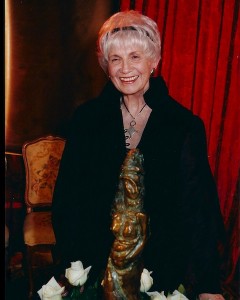The Giller Prize story: an oral history, part four
Sue Carter Flinn, Quill and Quire
November 04, 2013

![]() n the fourth post of a four-part oral history, Q&Q speaks to Scotiabank Giller Prize insiders about the award’s first 20 years. For the full story, see Q&Q’s November issue, on newsstands now.
n the fourth post of a four-part oral history, Q&Q speaks to Scotiabank Giller Prize insiders about the award’s first 20 years. For the full story, see Q&Q’s November issue, on newsstands now.
According to BookNet Canada, sales for Will Ferguson’s 2012 Giller-winning novel, 419, increased by 900 per cent in the three weeks following the announcement. This annual sales bump has been dubbed “the Giller effect.”
Douglas Gibson, former McClelland & Stewart publisher and long-time editor of Alice Munro: M.G. Vassanji’s The Book of Secrets came out in spring 1994. We printed an optimistic 5,000 copies. It got very good reviews, but by the time of the Giller nominations, it had run its course. The book was starting to be returned. Then the nomination and nothing happens; the book continues to be returned. M&S chairman Avie Bennett and I had a very worried discussion about what to do. The idea of reprinting this book was totally outlandish, except that this was the first year of the prize, and we realized that if there was going to be what later came to be called “the Giller effect,” we had a role to play.
We couldn’t risk not reprinting because that would have ensured that the prize would fall flat, so we reprinted lots of copies. If it did win, we could flood the market and make it a best-selling success.
When the book won, the reaction wasn’t joy, delight, or exaltation; it was relief. We sold out that reprint and another reprint.
Vincent Lam, winner, Bloodletting and Miraculous Cures (2006): There were lots of opportunities that did not come to me before: foreign sales contracts, invitations to international festivals, and a television adaptation. I do wish that the prize was able to spread the benefits more widely. I’d love to see the shortlist sold as a box set or even a book-of-the-month club so that, over the course of a year, you would get the winner and all the longlisted books.
Sarah MacLachlan, president and publisher of House of Anansi Press, which has published 13 shortlisted titles: From my perspective, the win is getting on the shortlist. We’ve had great success with books that have been shortlisted. Choosing the winner is just a crapshoot. The jury has decided that these five or six books are the books they’re going to choose from. That’s what I tell my writers: enjoy this period. The focus is on all five of you, and you’re going to receive a lot more attention. I think it’s overwhelming for a lot of authors, especially for first-time novelists.
John Gould, finalist, Kilter: 55 Fictions (2003): I don’t know how my book would have done if it hadn’t been nominated. It had almost no reviews. It suddenly got reviews in the major newspapers. It got published in the U.S., which would not likely have happened otherwise. I still continue to find that the book has life. It’s hard to imagine what else could have happened to give it that access.
David Adams Richards, winner for Mercy Among the Children (2000); juror (2001): I’m sure my book sold more than it would have if it hadn’t won the Giller. It was on the bestsellers list in Canada, and it sold pretty well around the world.
Zsuzsi Gartner, finalist, Better Living Through Plastic Explosives (2011): As a result of being nominated for the Giller, I was invited to three international literary festivals. In all three cases, festival directors contacted me because they saw the book on the list. As a result, I went to Beijing and Cork, Ireland, and, just this past March, I went to Adelaide, Australia. We have a little joke around the house: I call it my one little book, three-continent tour.
Gould: Now, it’s more likely that people will ask, “Why are you not writing?” rather than “Why are you writing?” Psychologically, that’s different. From the point of view of an author, it’s a big gift. ![]()
© 2013 Quill and Quire